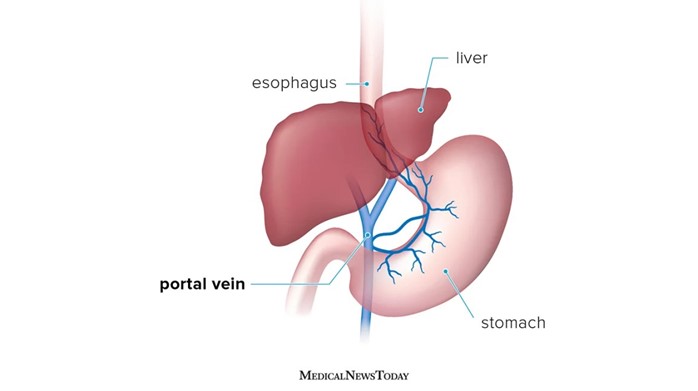A nurse is caring for a client who has a mild traumatic brain injury (TBI). Which of the following manifestations should the nurse immediately report to the provider?
A drop in heart rate from 74 to 68/min.
A change in the Glasgow Coma Scale score from 14 to 10.
Headache.
Diplopia.
The Correct Answer is B
Choice A reason: This is incorrect because a drop in heart rate from 74 to 68/min is not a manifestation that requires immediate reporting to the provider. A mild decrease in heart rate can be normal or due to other factors such as medication, sleep, or relaxation. It does not indicate a worsening of brain injury or increased intracranial pressure.
Choice B reason: This is the correct answer because a change in the Glasgow Coma Scale score from 14 to 10 is a manifestation that requires immediate reporting to the provider. The Glasgow Coma Scale is a tool that measures the level of consciousness based on eye-opening, verbal response, and motor responses. A score of 14 indicates mild impairment, while a score of 10 indicates moderate impairment. A decrease in score can indicate deterioration of neurological status and increased intracranial pressure, which can be life-threatening.
Choice C reason: This is incorrect because the headache is not a manifestation that requires immediate reporting to
the provider. Headache is a common symptom of mild TBI and can be managed with analgesics, rest, and hydration. It does not indicate a worsening of brain injury or increased intracranial pressure unless it is severe, persistent, or accompanied by other signs such as vomiting, confusion, or seizures.
Choice D reason: This is incorrect because diplopia is not a manifestation that requires immediate reporting to
the provider. Diplopia means double vision and can be caused by damage to cranial nerves or eye muscles due to TBI. It can be treated with eye patches, glasses, or surgery. It does not indicate a worsening of brain injury or increased intracranial pressure unless it is associated with other symptoms such as blurred vision, loss of vision, or eye pain.
Nursing Test Bank
Naxlex Comprehensive Predictor Exams
Related Questions
Correct Answer is A
Explanation
Choice A reason: This is the correct answer because portal hypertension means that there is high blood pressure in the portal vein, which carries blood from the digestive organs to the liver. When the liver is damaged by hepatitis, it becomes scarred and obstructs the blood flow, causing increased pressure in the portal vein. This leads to fluid accumulation in the abdomen, called ascites, which causes abdominal swelling.
Choice B reason: This is incorrect because portal hypertension is not caused by the heart overworking but by liver damage. The heart does not pump blood into the portal vein, but into the hepatic artery, which supplies oxygenated blood to the liver.
Choice C reason: This is incorrect because portal hypertension does not develop when cirrhosis begins to resolve, but when it progresses. Cirrhosis is a chronic condition that causes irreversible scarring of the liver tissue, which worsens over time and increases portal hypertension.
Choice D reason: This is incorrect because eating high-sodium foods and a stressful lifestyle do not cause portal hypertension, but they can aggravate it. High-sodium foods can increase fluid retention and worsen ascites, while stress can increase blood pressure and worsen bleeding complications. The nurse should advise the client to limit sodium intake and manage stress levels.

Correct Answer is C
Explanation
Choice A Reason: The test does not assess for sun protection factor, but rather for contact dermatitis. Sun protection factor is a measure of how well a sunscreen protects the skin from ultraviolet radiation, which can cause sunburn and skin damage.
Choice B Reason: The test is not inconclusive, but rather positive for some allergens and negative for others. The test involves applying small patches of different substances to the skin and observing for any reactions after 48 hours.
Choice C Reason: This is the correct choice. The presence of erythema indicates you are allergic to the allergen, as it shows inflammation and irritation of the skin due to an immune response. Erythema is redness of the skin that can be accompanied by itching, swelling, or blisters.
Choice D Reason: The areas that did not turn red do not indicate low risk for skin cancer, but rather no reaction to the allergen. Skin cancer is a malignant growth of abnormal cells in the skin that can be caused by various factors, such as genetic mutations, exposure to carcinogens, or immunosuppression.
Whether you are a student looking to ace your exams or a practicing nurse seeking to enhance your expertise , our nursing education contents will empower you with the confidence and competence to make a difference in the lives of patients and become a respected leader in the healthcare field.
Visit Naxlex, invest in your future and unlock endless possibilities with our unparalleled nursing education contents today
Report Wrong Answer on the Current Question
Do you disagree with the answer? If yes, what is your expected answer? Explain.
Kindly be descriptive with the issue you are facing.
